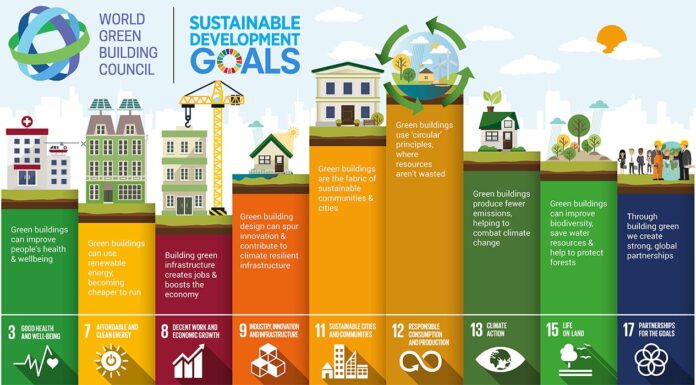Since the onset of the COVID-19 pandemic, the real estate sector worldwide is stepping up its response to climate change and sustainable development.
At the same time, there is an increasing awareness of the environmental impact of real estate: the World Green Building Council suggests that buildings are responsible for upwards of 40% of the world’s greenhouse gas emissions. Investors, occupiers and real estate companies all have an equal responsibility to support and drive sustainable development.
With an aim to create a consistent agenda and definition, the World Green Building council in 2016 set up the Advancing Net Zero campaign. Since then, it has gained enough momentum and has come to influence actions of all stakeholders including governments, city councils, property owners, investors and occupiers alike.
New buildings are readily adopting low or zero carbon-heating solutions; however, the challenge will be retrofitting older buildings as this may require updating traditional energy systems, as well as changing internal layouts and facades.
Achieving net zero, both in operations and construction, will mean re-thinking the way we approach design and construction and introduce circularity in the planning phase because much of the future performance of a building is dictated by early decisions.
Designs that use fewer material and recycle steel and concrete where possible, positively impacts embodied carbon of a building.
Ultimately, the industry will need to recognize net zero not as a label but as a process that demonstrates the performance of a building maintained at net zero.
Thus, moving from a compliance focused to a performance-focused approach will become the key step in advancing the net zero agenda.
At JLL, we understand that a…



